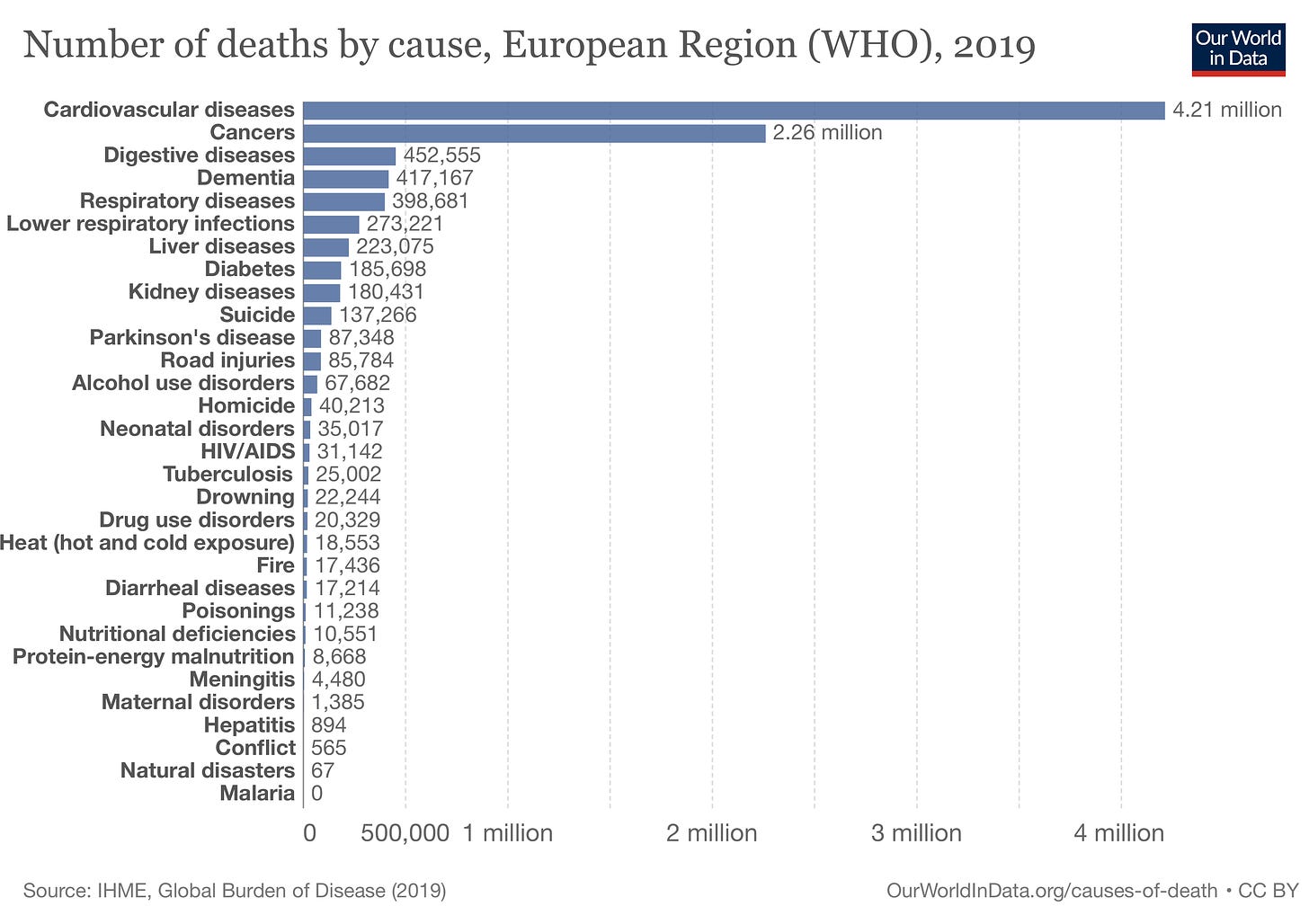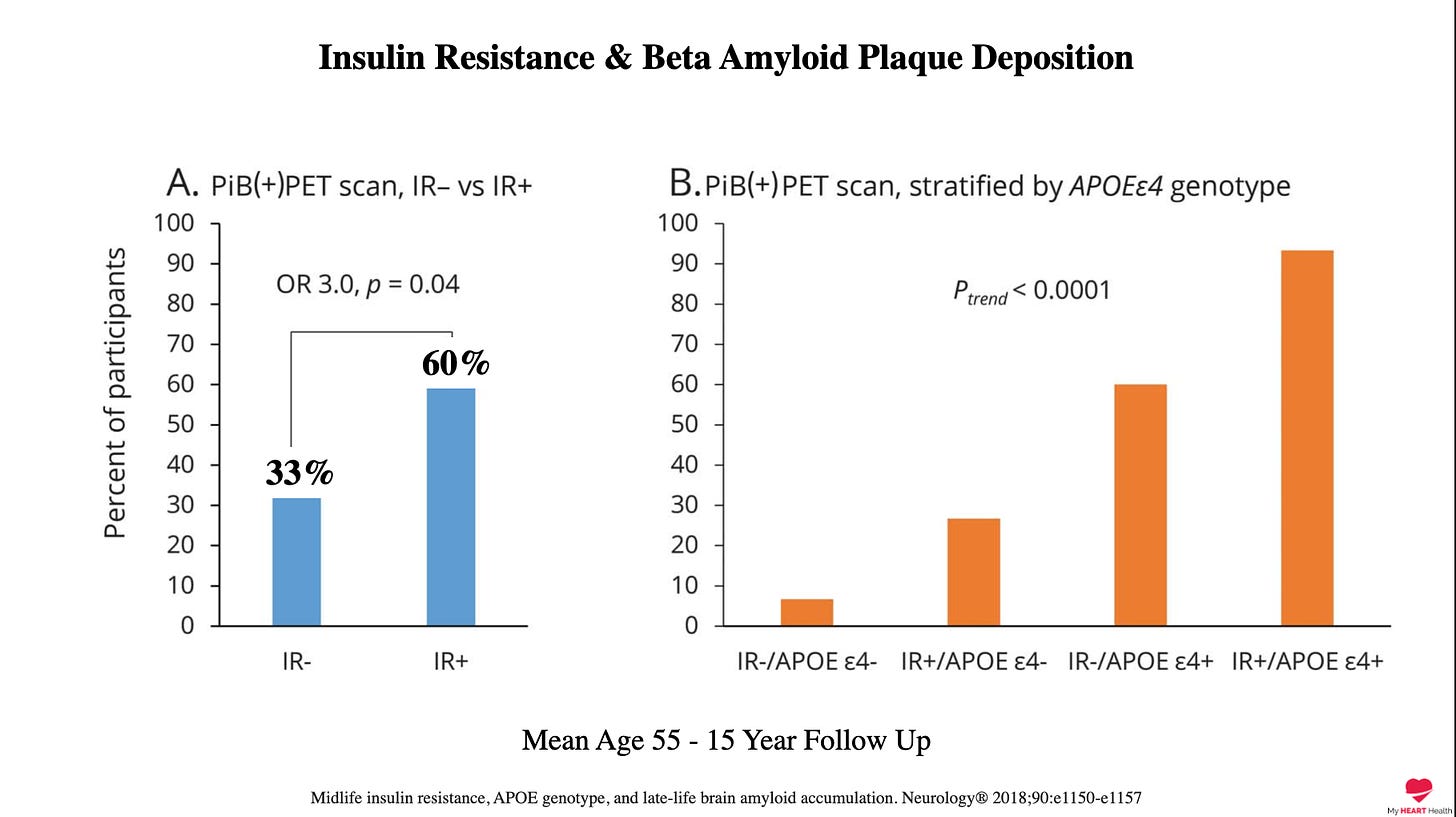Can You Prevent Dementia?

We have all witnessed the sorrow of seeing someone whose ‘body’ is still with us but whose minds have long since gone.
More than heart disease or cancer, people often fear dementia the most.
What comes as a surprise to many is that dementia is the 4th leading cause of death in Europe and the United States1.

In the end, all we have is our minds and time.
Even with that ‘time’, if we lose our cognitive function, its quality is seriously diminished. The possibility of ‘losing our minds’ to dementia is something we all worry about.
When it comes to preventing and treating cardiovascular disease and cancer, modern science has made tremendous progress.
When it comes to dementia, almost all of the trials in this area have been failures.
The FDA has recently approved a therapy for dementia, but not without significant controversy over its effectiveness2. A more recent treatment has demonstrated some benefits, but the magnitude of that benefit is likely to be very small3.
So far, our treatments for dementia have not been a success.
Our understanding of what causes dementia, particularly Alzheimer’s dementia, may also be based on potentially fraudulent research. Amyloid plaques in the brain are thought to be the main reason a person develops Alzheimer's dementia, but this may not be the case4.
We may have been looking at things the wrong way for decades.
This might also explain why all the treatments for dementia, which are primarily based on the amyloid plaque hypothesis, have failed.
So as of now, we are without meaningful treatments for the 4th leading cause of death in most developed nations.
If We Cannot Treat It, Can We Prevent It?
The answer is yes.
It is estimated that 40% of dementia cases could be prevented by targeting modifiable risk factors5.
If you focus on reducing your cardiovascular risk, you are already a long way there.
Dementia can be broadly broken down into two categories:
-
Alzheimer’s Dementia.
-
Vascular Dementia.
There are other types, but they are rare.
Given the failing plausibility of the amyloid plaque hypothesis, we are interestingly finding overlaps in the mechanisms of Alzheimer’s and Vascular dementia67. Because of this, there is scope for preventing the onset of both using shared approaches.
Obesity
The relationship between obesity and the risk of dementia is complex.
Those who are underweight later in life have a higher rate of dementia. One of the theories for this is that those who develop dementia are likely to become undernourished and, therefore, underweight rather than overweight. However, being obese in midlife does increase the risk of dementia by about 39%8.
Metabolic Syndrome
The metabolic syndrome constitutes the combination of high triglycerides, low HDL cholesterol, high blood pressure, increased waist circumference, and abnormal glucose control. A person needs only 3 of the above five parameters to meet the criteria for this diagnosis.
Having metabolic syndrome is associated with a three-fold increased risk of developing Alzheimer’s Dementia and is also associated with a significantly increased risk of vascular dementia910.
The underlying defect of metabolic syndrome is insulin resistance which may explain the increased risk of both Alzheimers and Vascular Dementia11.
Diabetes
Often seen as the most significant manifestation of insulin resistance, diabetes is associated with higher rates of dementia. For those with diabetes, the risk of any dementia increased by 73% and for Alzheimer's dementia increased by 56%. With respect to vascular dementia, that risk went up by 127%12.
High Blood Pressure
Elevated blood pressure, typically defined as a systolic (top number) blood pressure of 140mmHg, is a core risk factor for all dementia types. Those with persistently high blood pressure from mid-life onwards have a 2-fold increased risk of dementia when followed for over 25 years13. Even systolic blood pressures above 130mmHg have been associated with higher rates of dementia14.

Smoking
Smoking is one of the most significant vascular risk factors, and it should be no surprise that smoking is associated with higher rates of dementia. In addition to having lower rates of vascular dementia, never smokers also had lower rates of Alzheimer's dementia15.
Exercise
Arguably one of the most potent ways to reduce the risk of dementia is through exercise. In a study following people for 44 years, compared to medium fitness having low fitness increased the risk of dementia by 41%. Amazingly, being in the high fitness category was associated with a 78% reduction in the onset of dementia.
If you were to take one action point away, it should be that exercise is critical for decreasing your risk of dementia.

Genetics
There are multiple genetic variants associated with early-onset dementia. One of the most common variants is the APOE4 gene variant. Individuals can carry one or two of these variants, which translates to a 2 - 10 times increased risk of dementia16.
However, if a person is insulin resistant, the risk of developing some of the brain changes associated with dementia increase even further. While you cannot change your genes, you can influence your risk of insulin resistance17.

Interestingly, having an APOE4 gene variant and also depressive symptoms, hearing or vision loss increased the risk of cognitive impairment by significant amounts. While hearing or visual loss are not traditional cardiovascular risk factors, they are, to an extent, modifiable18. Studies have demonstrated that in those with hearing loss, hearing aids and cochlear implants are associated with lower rates of dementia19.
Dementia As A Metabolic Disease
40% of dementia is potentially preventable by focusing on the modifiable factors laid out above.
Those modifiable factors also drive your risk of insulin resistance, metabolic syndrome, cardiovascular disease and diabetes.
With the repeated failures of amyloid plaque therapies and major question marks over the amyloid dementia hypothesis, it could be argued that dementia, both Alzheimers and vascular dementia, may have a fundamental metabolic dysfunction defect underlining them20.
“Genetics loads the gun, but lifestyle pulls the trigger.”
Some of us will be dealt a poor ‘genetic’ hand regarding our future risk of dementia.
That does not mean we cannot reduce that risk if we focus on core metabolic risk factors.
-
Being physically active
-
Not smoking
-
Maintaining normal blood pressure.
-
Avoiding Metabolic Syndrome & Diabetes
-
Keeping our weight at target.
All of these are factors under your control.
Always remember that.
https://ourworldindata.org/causes-of-death
https://www.nytimes.com/2021/07/19/health/alzheimers-drug-aduhelm-fda.html
Lecanemab in Early Alzheimer's Disease. N Engl J Med. 2022 Nov 29. doi: 10.1056/NEJMoa2212948. Epub ahead of print. PMID: 36449413.
Piller C. Blots on a field? Science. 2022 Jul 22;377(6604):358-363. doi: 10.1126/science.add9993. Epub 2022 Jul 21. PMID: 35862524.
Dementia Prevention, Intervention, and Care: 2020 Report of the Lancet Commission. Lancet 2020, 396, 413–446.
Alzheimer’s Disease and Diabetes: Insulin Signaling as the Bridge Linking Two Pathologies . (2020) Molecular Neurobiology, 57 (4) , pp. 1966-1977.
-
Early Role of Vascular Dysregulation on Late-Onset Alzheimer’s Disease Based on Multifactorial Data-Driven
Analysis. Nat. Commun. 2016, 7.
Midlife and late-life obesity and the risk of dementia: cardiovascular health study. Arch Neurol. 2009 Mar;66(3):336-42.
The Metabolic Syndrome and Alzheimer Disease. Arch Neurol . 2007;64:93-96
Metabolic Syndrome and Risk for Incident Alzheimer's Disease or Vascular Dementia: The Three-City Study. Diabetes Care 1 January 2009; 32 (1): 169–174.
Alzheimer’s Disease and Diabetes: Insulin Signaling as the Bridge Linking Two Pathologies . (2020) Molecular Neurobiology, 57 (4) , pp. 1966-1977.
Diabetes mellitus and risk of dementia: A meta-analysis of prospective observational studies. J Diabetes Investig. 2013 Nov 27;4(6):640-50.
Blood pressure from mid- to late life and risk of incident dementia. Neurology. 2017 Dec 12;89(24):2447-2454.
Association between systolic blood pressure and dementia in the Whitehall II cohort study: role of age, duration, and threshold used to define hypertension, European Heart Journal, Volume 39, Issue 33, 01 September 2018, Pages 3119–3125,
Effect of smoking cessation on the risk of dementia: a longitudinal study. Ann Clin Transl Neurol. 2018 Sep 5;5(10):1192-1199.
Risk Estimates of Dementia by Apolipoprotein E Genotypes From a Population-Based Incidence Study: The Rotterdam Study. Arch Neurol. 1998;55(7):964–968.
Midlife insulin resistance, APOE genotype, and late-life brain amyloid accumulation. Neurology® 2018;90:e1150-e1157
Interactions between the apolipoprotein E4 gene and modifiable risk factors for cognitive impairment: a nationally representative panel study.BMC Geriatr 22, 938 (2022).
Association of Hearing Aids and Cochlear Implants With Cognitive Decline and Dementia: A Systematic Review and Meta-analysis. JAMA Neurol. Published online December 05, 2022.
The Alzheimer's disease mitochondrial cascade hypothesis: progress and perspectives. Biochim Biophys Acta. 2014 Aug;1842(8):1219-31.




